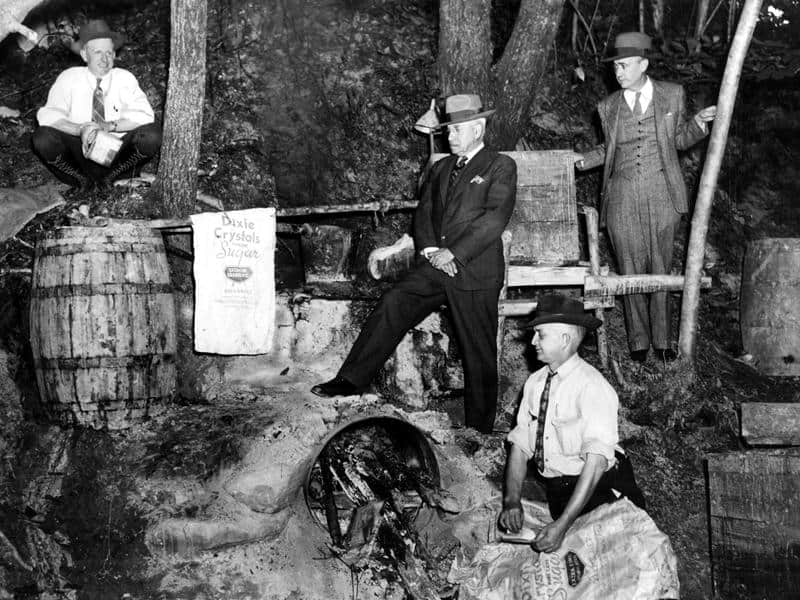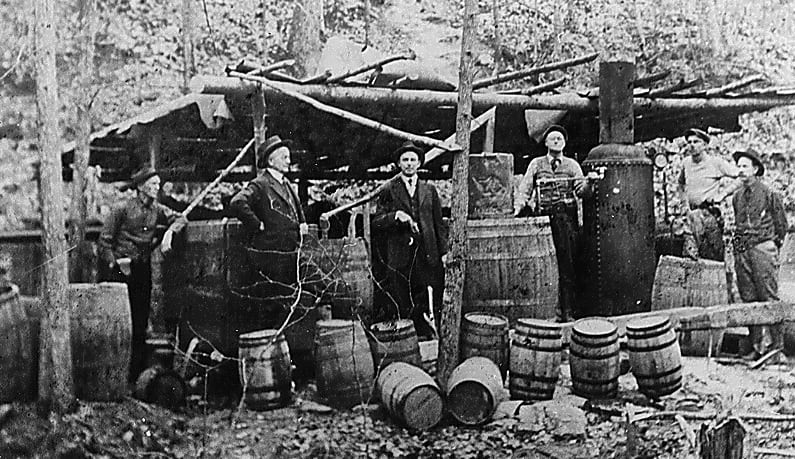In the early 19th century many people within the United States grew tired of what they saw as rampant alcoholism and the problems that came with it. The increase in family violence and saloon based political corruption due to alcohol consumption was the final straw for many Protestants and Progressives who just had enough.
The Woman’s Christian Temperance Union spurred a national movement against alcohol and their initiatives were successful when the Eighteenth Amendment to the United States Constitution was passed in 1920. The amendment banned the production, transport and sale of alcohol for consumption.
Private consumption of alcohol was allowed provided a family already had some alcohol. Wine was allowed to be used for religious purposes. Doctors and pharmacists were still allowed to prescribe medicinal alcohol (which led to thousands of doctors and pharmacists getting their license to prescribe it).
At first the laws were largely ignored. Organized crime filled the gap created by the 18th amendment and the Volstead Act which restricted legal access to alcohol. Large cities began to have crime rings that made sure those who wanted it, had plenty of access. Getting the alcohol after production shut down was a bit of a problem, but there were plenty of men willing to fill that gap as well.

Crime bosses had their methods and didn’t always have to rely on a bathtub. Others found that making their own moonshine and bootlegging was the best way to get their alcohol. Moonshiners would make their brew deep within the woods and either kept it for themselves or sold it to make a profit.
Moonshine is a form of whiskey that is illegally distilled and often using corn mash as its main ingredient. It became a vital source of income for people in the Appalachian region because the lack of roads made it difficult and expensive to transport corn crops. A horse could haul ten times more value in whiskey than it could carry in corn and therefore moonshine was a way for farmers to provide for their families even before prohibition.
Once the 18th amendment was passed many moonshiners, as the men who made moonshine were called, had to find ways to hide their operations. They could not afford to stop selling their whiskey and many were happy to take advantage of the increase in price they could charge due to the increased risk of producing and distributing the moonshine. Even after the repeal of the 18th amendment in 1933, moonshine was still an illegal practice due to the fact that it was not taxed.
The Volstead Act was passed in order to carry out the intent of the 18th amendment. It created regulation for the production of alcohol for use in industry and research while preventing the production and sale of alcohol for consumption. However, there was very little done to help law enforcement to find, catch and persecute men who were breaking the law.
In the first six months following the passage of the Volstead Act, the federal government opened over 7,000 cases for violations. In the first fiscal year of 1921, there were over 29,000 cases for violations. That number would continue to rise dramatically over the next thirteen years of prohibition.
While the rise in cases might seem like law enforcement were doing a good job of fighting those who broke the law, they lacked the resources to have any significant enforcement of the law. In 1925 there were anywhere from 30,000 to 100,000 speakeasies in New York City alone. The police were so ill-quipped that at times clergymen were called upon to form vigilante groups that would help catch bootleggers.

When it came to moonshiners, it was the rough terrain that prevented law enforcement from stopping them. There were valleys, mountains, lakes, swamps and endless forests for moonshiners to hide their stills and even some of the largest operations went completely undetected throughout the years of prohibition.
Despite this, moonshiners always had the fear that they would be one of the thousands of people a year who did get caught and they took every precaution to make sure they would not be found. One of the most unique ways that moonshiners would hide their moonshine was through the use of cow shoes.

